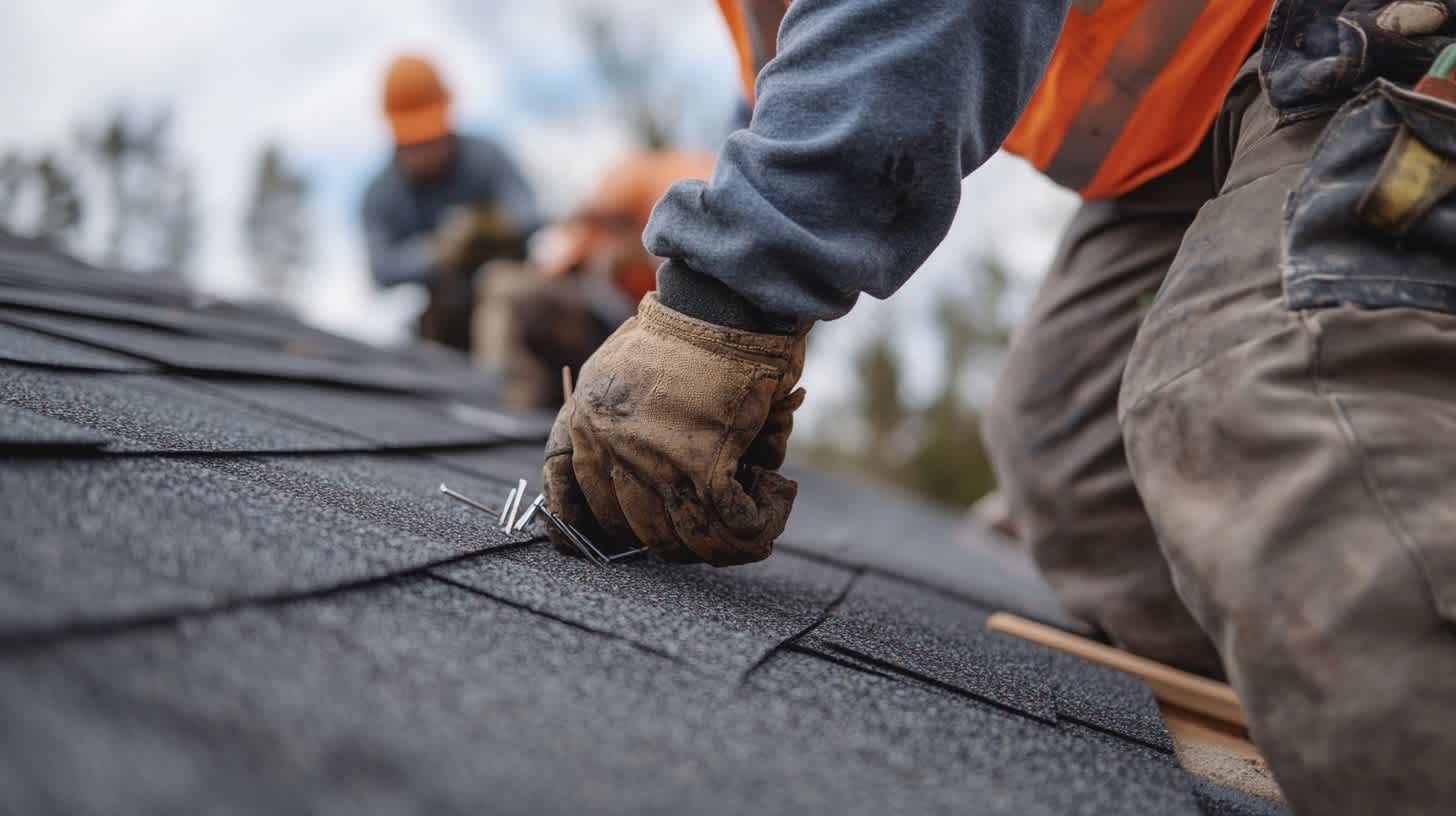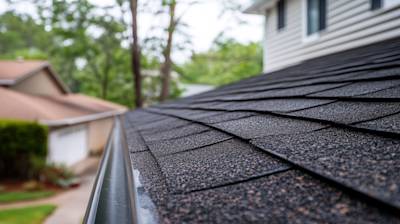Roofing nails, as vital components in construction, often go unnoticed. Yet, their role in securing the roof over your head is invaluable. This detailed guide provides a comprehensive understanding of roofing nails, types, uses, and how to choose the right kind.
Discovering the Basics of Roofing Nails
Roofing nails, otherwise known as 'roofing tacks,' typically have a larger, flat head and a short shank. This design ensures maximum holding power and prevents the nail from pushing too far into the roofing material. As inconspicuous as they may seem, these tiny roof warriors come in various types and sizes, each designed to perform optimally under particular roofing conditions.
Different Types of Roofing Nails and their Applications
There are various kinds of roofing nails, including:
Galvanized Roofing Nails: These are the most commonly used type. They are steel nails coated in zinc to provide additional resistance to rust and corrosion. Galvanized roofing nails are great for fastening shingles and other roofing materials.
Aluminum Roofing Nails: Lighter than their counterparts, these nails are rust-resistant, making them an excellent option for coastal regions. However, they aren't as strong as galvanized nails and may not hold up in high-wind situations.
Copper Roofing Nails: Chosen for their durability and elegance, copper roofing nails increase the lifespan of your roof due to their innate resistance to corrosion. They’re also ideal for installing copper flashing or shingles.
Stainless Steel Roofing Nails: With high resistance to rust and corrosion, these nails are long-lasting, making them the go-to option for roofing projects in harsh environments.
Factors to Consider when Choosing Roofing Nails
Material Compatibility
Though roofing nails come in several materials, it's crucial that the nail material is compatible with the roofing material to avoid reactions that might lead to rust or corrosion.
Nail Length
Roofing nail length varies based on the roofing material and shingle thickness. A rule of thumb is to choose a nail length that will penetrate the roofing material and go at least 3/4 of an inch into the deck beneath it.
Environmental Conditions
For coastal or high-moisture environments, consider rust-resistant options like stainless steel or aluminum roofing nails.
Roofing Nails Sizes: Which is right for you?
Roofing nails come in different sizes denoted by a term called "penny." This term, symbolized by "d," originates from the price of 100 nails in pennies in the 1600s. The commonly used roofing nail sizes include:
1d Nails: These are 1-inch long nails usually used for smaller roofing jobs.
2d Nails: At 1 inch in length, these nails are often applied for thin, lightweight roofing materials.
3d Nails: These are your standard 1 1/4-inch roofing nails that commonly fasten asphalt shingles.
4d Nails: These 1 1/2-inch roofing nails are primarily used for thicker roofing materials or multiple-layer applications.
Frequently Asked Questions about Roofing Nails
What are the Different Types of Roofing Nails?
When it comes to roofing nails, there are various types available to cater to different roofing objectives and materials. The common ones include:
- Galvanized roofing nails: These nails have a protective zinc coating to ward off rust. They are excellent for outdoor projects and especially roofing due to their durability.
- Copper roofing nails: Known for their resistance to rust, these nails are a great pick if longevity is your top-most concern.
- Aluminum roofing nails: These are lightweight and rust-resistant, making them ideal for aluminum rooftops.
- Stainless steel roofing nails: With supreme corrosion resistance, these nails are the perfect fit for coastal regions with salty air.
How Long Should Roofing Nails Be?
Roofing nails come in various lengths to accommodate different roofing materials and thicknesses. Typically, roofing nail lengths can range from 1 inch to 2 inches. The general rule is that the roofing nail should penetrate the roofing material and go about ¾ inch into the roof deck. Therefore, the perfect length may vary depending on the specific thickness of your roofing materials.
How Many Roofing Nails per Shingle?
On average, you'll need four nails per shingle. However, this can vary depending on the shingle type and local weather conditions. If you live in a high-wind area, using six nails per shingle might be beneficial to ensure your roof can withstand those winds. Always remember, it's crucial to adhere to the nail placement guidelines from the shingle manufacturer to prevent leakages and premature wear.
Are Roofing Nails Magnetic?
Yes, most roofing nails – especially those made from galvanized steel or iron - are magnetic. This property is particularly useful during roof installation and maintenance. After removing old shingles, roofing technicians often use a magnetic sweeper to collect any fallen or hidden nails, ensuring that your property remains safe and clean.
Can I Use Roofing Nails for Siding?
While it's physically possible to use roofing nails for siding, it’s not advisable. Although similar, roofing nails and siding nails are designed to cater to unique specification requirements of each application in terms of corrosion resistance, holding capacity and length.
Can Roofing Nails Rust?
Roofing nails can rust, However, most of them are designed to resist rust. For example, galvanized roofing nails have a layer of zinc to prevent them from rusting. Similarly, stainless steel and aluminum roofing nails have a high resistance to rust. However, in harsh weather conditions or over a long period, these nails might eventually exhibit signs of rust.
What Should I Do If the Roofing Nails are Popping Up?
If your roofing nails are popping up, it's a sign of potential roof damage. Make sure to contact a professional roofer as soon as possible. They’ll inspect your roof, identify the underlying problem and take necessary measures either to hammer the nails back down, replace them, or advise on other appropriate solutions.
Pros of Roofing Nails
Durability
Material Strength
Roofing nails are generally made of galvanized steel, which makes them highly durable and resistant to corrosion. This means they are able to survive harsh weather conditions without breaking or rusting. When nailed properly, they can provide a solid and secure hold for a long time, making them reliable for any roofing applications.
Weather Resistance
Due to their heavy galvanized coating, roofing nails are highly resistant to moisture and other weather elements. This means they can withstand constant exposure to rain, snow, or even salty air in coastal areas without losing their structural integrity. They provide the longevity and durability necessary for any exterior roofing projects.
Versatility
Roofing nails come in a variety of sizes and styles that make them versatile for different roofing materials and applications. Whether you are installing asphalt shingles, slate, or metal roofing, there’s always a specific type of roofing nail that suits your needs.
Easy to Install
Roofing nails have broad, flat heads, and sharp pointed tips, which allow for easy installation. The broad head helps to securely fasten the roofing materials without tearing through, while the sharp tip allows for easy penetration into the roofing material and the roof deck.
Cons of Roofing Nails
Corrosion Over Time
Even though roofing nails are generally made to resist corrosion, over time, especially in high moisture environments, they may corrode. Galvanized roofing nails might start showing the signs of corrosion over time, resulting in a weakened roofing system, hence the need for frequent replacement.
Not Ideal for All Types of Roofs
Despite their versatility, roofing nails might not be ideal for all types of roofs. For instance, they might not be the best choice for corrugated metal roofs where screws with rubber washers generally provide a more secure fastening.
Requires Proper Installation
Roofing nails require proper installation to provide effective results. If not nailed properly, they might cause problems like nails popping out from the roofing materials, causing leaks in the process. It is also key that roofing nails are driven straight into the deck. Angling the nails can lead to reduced holding power and potentially damage the surface of the roof.
Can Cause Damage if Incorrectly Sized
Incorrectly sized nails can cause major issues. If the nail is too short, it may not fully penetrate and secure the roofing material, resulting in loose shingles or tiles. Additionally, if the nail is too long, it can puncture through roofing elements, causing unnecessary damage and potential leaks.
Risk of Overdriving or Under Driving
With roofing nails, there's a risk of overdriving or under driving them. Overdriven nails can cut into the roofing material, which can cause it to crack or split. Under driven nails don’t fully secure the roofing material to the deck, leading to exposed nail heads that can allow water to seep into the roofing structure, promoting rot and decay.
In conclusion, while roofing nails have their advantages, they also have their disadvantages. The key to getting the best out of them lies in understanding how to choose the right type and size, as well as, proper installation techniques.
Summary
So, whether you're a professional roofer or an avid DIYer, it's clear that the right choice of roofing nails can significantly affect the overall quality and durability of your roofing project. These small, yet essential items, play a crucial role in ensuring that the roofing material is securely fixed to the house. High-quality roofing nails are also surprisingly versatile, making them suitable for a number of different construction and home maintenance tasks.
When choosing the ideal roofing nails, it's important to take into account factors like the type of roof you're working on, the climatic conditions in your area, and your budget. The important thing is not to skimp on quality for the sake of saving a few bucks. Remember, poorly fitted or inferior quality nails could lead to roofing issues down the line, potentially costing you a lot more in repair and replacement costs.
Despite often being overlooked, roofing nails are an integral part of the construction process. Their longevity and reliability are undoubtedly essential in establishing the durability and weather resistance of roofs. So next time you're up there inspecting or installing a roof, remember the vital role these little nails play and give them the attention they deserve.
About Solid Construction & Design
At Solid Construction & Design, we're more than just bricks and mortar, we're Sacramento, CA's trusted partner in turning houses into homes. We bring a blend of craftsmanship, innovation, and good old-fashioned hard work to every project. We believe in creating spaces that speak to the unique lifestyle and personalities of their owners. Whether it's a kitchen remodel, a bathroom renovation, or a home extension, we're known for our keen eye for detail and commitment towards premium quality. From our first shovel in the ground to the final polish on a granite countertop, your dream home is our passion.







